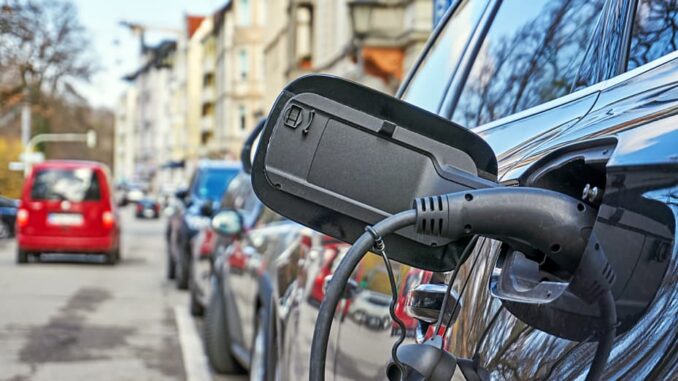
The European Parliament and Council have provisionally agreed that all new vehicles registered in Europe must be zero emission by 2035, the European Commission said Oct. 28.
The agreement is the first step in adopting the EC’s “Fit for 55” legislative proposals tabled in July 2021 that aim to reduce the EU’s net greenhouse gas emissions by at least 55% by 2030 from 1990 levels.
The EC said the agreement also demonstrates ahead of the UN Climate Change Conference “the EU’s domestic implementation of its international climate commitments.”
The new CO2 standards will also require average emissions to fall 55% by 2030 for new cars and 50% by 2030 for new vans as an intermediary step toward zero emissions.
The provisional agreement will need to be formally adopted by the parliament and the council for the new legislation to be published in the Official Journal of the Union and enter into force.
The EC said the agreement was a clear signal to manufacturers and citizens to accelerate the production and sale of low- and zero-emission vehicles and road transport to reach climate neutrality by 2050.
“This new legislation will make the EU’s transport system more sustainable, provide cleaner air for Europeans and marks an important step in delivering the European Green Deal,” the EC said. “It clearly shows the commitment of the EU to reach its climate goals and shows that Russia’s war of aggression in Ukraine is not slowing our clean energy transition but rather accelerating our work and making us progress faster to become the world’s first climate neutral continent by 2050.”
“The agreement sends a strong signal to industry and consumers: Europe is embracing the shift to zero-emission mobility,” European Green Deal Executive Vice-President Frans Timmermans said. “European carmakers are already proving they are ready to step up to the plate, with increasing and increasingly affordable electric cars coming to the market.”
ACEA calls for conditions to enable zero-emission mobility
The European Automobile Manufacturers’ Association, or ACEA, said it would effectively ban the sale of traditional internal combustion engine vehicles.
The ACEA called on European policy makers to deploy conditions enabling zero-emission mobility and a “robust and meaningful” interim review of the CO2 regulation, which it said was essential to evaluate if sufficient progress has been made in market developments, infrastructure deployment, the availability of raw materials, and affordability.
The ACEA also asked policy makers to address emissions from the existing fleet of vehicles.
“This extremely far-reaching decision is without precedent,” ACEA President and BMW CEO Oliver Zipse said. The decision meant the EU would be the first and only world region to go all-electric, he said.
“Make no mistake, the European automobile industry is up to the challenge of providing these zero-emission cars and vans,” Zipse said. “However, we are now keen to see the framework conditions which are essential to meet this target reflected in EU policies,” that would need to include an abundance of renewable energy, a seamless private and public charging infrastructure network, and access to raw materials.
In 2021, 20% of all new cars sold in the EU were plug-in. This set is expected to rise to three cars in every five by 2030, according to the ACEA.
Increased demand for electric vehicles has been one of the factors boosting lithium prices. Platts, part of S&P Global Commodity Insights, assessed seaborne lithium carbonate and lithium hydroxide at $74,300/mt CIF North Asia and $81,200/mt CIF North Asia Oct. 28, up 119.8% and 156.2%, respectively, since the start of 2022.
“We must now work together on policies that guarantee access to the raw materials needed for e-mobility, make electric cars affordable mass-market products, mitigate negative employment consequences, and enable European citizens to charge their electric vehicle quickly and easily,” ACEA Director General Sigrid de Vries said.
The ACEA has urged Europe to build resilient supply chains, especially for batteries and raw materials, otherwise EU vehicle manufacturers would be at a disadvantage compared with automakers in other regions in the wake of high energy prices.
Affordability risks were becoming a bigger obstacle with rising inflation and higher battery prices for the first time in over a decade.
“We believe that technology openness remains essential to retain the agility to respond to different needs and to adapt to changing circumstances,” De Vries said. “As the current energy crisis demonstrates, diversification is essential to improve Europe’s resilience.”



